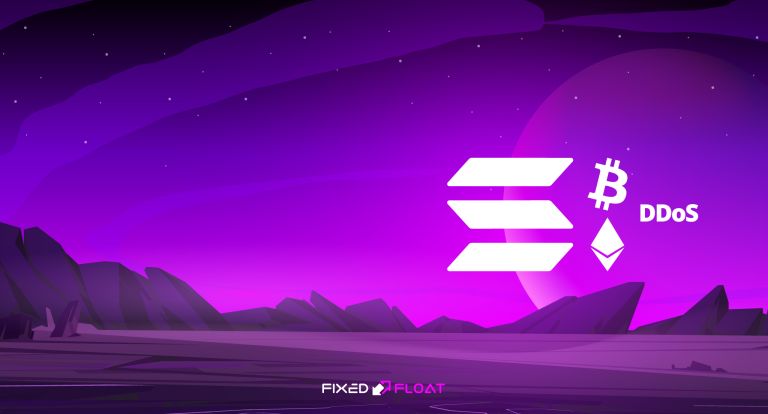The biggest heist in the history of the crypto community: hackers stole $1.5 billion from the Bybit exchange
Cryptocurrency exchange Bybit has reported that one of its Ethereum cold wallets was hacked, from which more than $1 billion in ETH was withdrawn. The exchange's CEO Ben Zhou confirmed the attack, explaining that the attackers used a sophisticated transaction substitution method to gain full control over the assets.
The attack was different from traditional hacks, where hackers steal passwords or break into servers. In this case, the target was the transaction confirmation process within the Bybit system. Exchanges typically use multi-signature wallets, where a transfer requires the approval of several people.
The hackers replaced the interface that signatories saw before confirming, showing the correct address and the standard security interface. However, in reality, the signature did not simply confirm the transfer, but gave full control over the wallet. After gaining access, the attackers transferred the funds to an unknown address and began distributing them across the network.
Bybit reported that other cold wallets were not affected by the attack, and the withdrawal process continues without changes. The exchange assures that all customer funds are securely secured, and in the event that it is impossible to return the stolen assets, the losses will be compensated at the expense of the platform itself.
Ethereum network fees fell to a 4-year low
The average transaction fee on the network of the second-largest cryptocurrency by market cap (7 DMA) has decreased from $2.57 to $0.77 in a week, a 70% decrease. Similar values were observed in mid-2020. This trend is confirmed by the extremely low median gas price, which is around 0.66 Gwei at the time of writing.
SOL inflation jumped by 30%
Solana (SOL) annual inflation increased by 30.5% after the implementation of a new fee distribution model. On February 12, the network implemented SIMD-0096, proposed in May 2024, which proposes the full (100%) use of priority fees to reward validators, replacing the previous 50%.
Due to the change, the amount of tokens burned daily decreased from 17,700 SOL to 1,000 SOL, which led to a drop in the coin withdrawal rate below 1%. Annual inflation increased from 3.6% to 4.7%. The implementation of SIMD-0096 also affected the share of REV (fees and tips) distributed to token holders - from 67% to 46%, while for validators, the figure increased from 30% to 51%.
FTX begins paying creditors
Former users of the bankrupt FTX platform with assets of up to $50,000 have started receiving their first payments via the Kraken exchange and the BitGo service. Reimbursement is carried out at the rates of November 2022. According to Sunil Kavuri, a representative of the largest group of FTX creditors, funds worth $800 million have already been received by 162,000 of 460,000 wallets.
Binance CEO: a new type of fraud "share-seed-phrase"
Binance CEO Richard Teng has warned of a new scam that aims to steal users' cryptocurrency. The scheme, known as Share-Seed-Phrase, is rapidly gaining popularity.
Teng said that criminals send out fake notifications about wallet hacks, offering to "protect" funds. In such messages, the attackers offer the seed phrase of a wallet that they control. Victims often act hastily, without checking the authenticity of the messages, as noted in the Binance blog. Once the deception is revealed, it becomes impossible to recover funds.
Binance reminded that the exchange never asks for private keys or seeds from its users. It also emphasized that any emergency requests should be verified through the platform's official channels.
New theory about the creator of Bitcoin: Jack Dorsey — Satoshi Nakamoto?
Twitter (X) and Square (Block) co-founder Jack Dorsey could be Satoshi Nakamoto, the creator of Bitcoin, according to deBanked editor-in-chief Sean Murray. He presented a number of facts that support this theory.
Dorsey was interested in cypherpunk in college, wearing a T-shirt with Adam Back’s RSA logo and studying cryptography. In 2003, he wrote about studying cryptography at 4 a.m. — a time that matches the timestamps of Bitcoin documents.
Murray also noted the coincidences: the first Bitcoin transaction occurred on Dorsey’s mother’s birthday, Satoshi joined the forum on Dorsey’s birthday, and the last block was mined on his father’s birthday. However, analysts at BitMEX Research doubt the theory, noting that it is difficult to accurately determine when Satoshi’s mining ended.
In 2014, hackers threatened to expose Satoshi’s connection to St. Louis, where Dorsey is from. In 2020, when Lex Friedman asked Dorsey about his connection to Satoshi, he said he wouldn’t admit it. Murray believes this contrasts with responses from other cryptographers who have outright denied such rumors.










